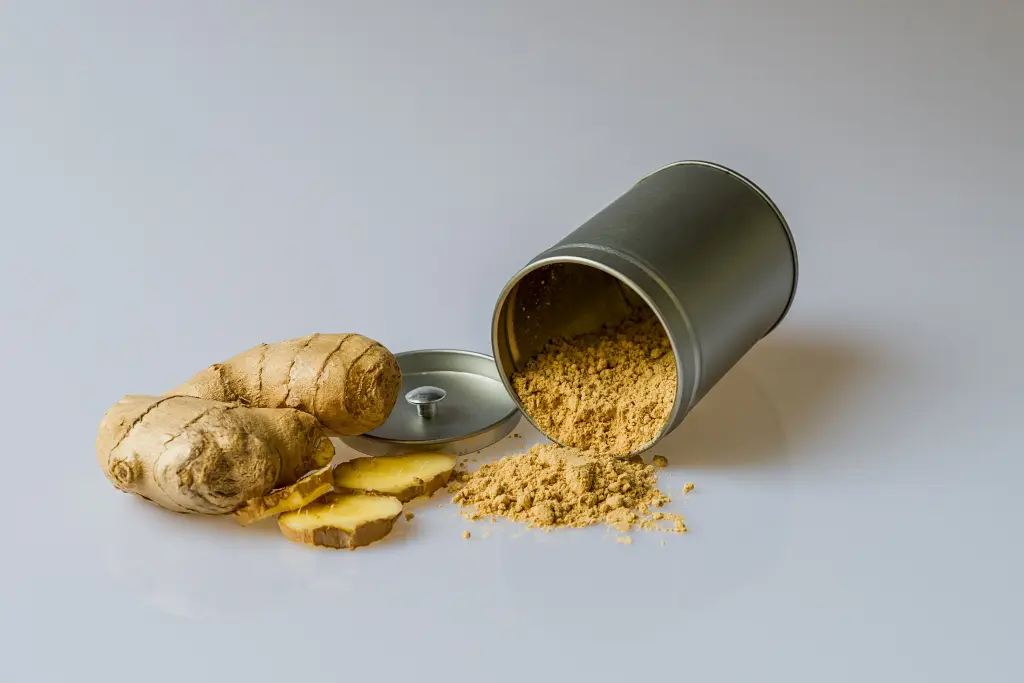Ginger is a popular spice that has been used for centuries for its medicinal properties. It is a root vegetable that is native to Asia and is commonly used in Asian cuisine. Ginger has a unique taste that is both spicy and sweet, and it is used in many different ways, including as a spice in food, a tea, and a supplement. In recent years, ginger has gained popularity as a natural remedy for a variety of health problems. In this article, we will explore some of the health benefits of ginger.
Anti-Inflammatory Properties
Ginger contains compounds that have powerful anti-inflammatory properties. These compounds, called gingerols and shogaols, are known to reduce inflammation in the body. Inflammation is a natural response of the body to injury or infection, but when it becomes chronic, it can lead to a variety of health problems, including arthritis, heart disease, and cancer. Ginger has been shown to reduce inflammation in people with osteoarthritis and rheumatoid arthritis, as well as in people with asthma and other respiratory conditions.
Digestive Health
Ginger has been used for centuries to treat digestive problems, including nausea, vomiting, and diarrhea. It is believed that ginger works by increasing the production of digestive enzymes and by promoting the movement of food through the digestive system. Ginger is also effective in reducing the symptoms of motion sickness and morning sickness in pregnant women.
Pain Relief
Ginger has been shown to be effective in reducing pain and inflammation. It is believed that ginger works by blocking the production of prostaglandins, which are chemicals that cause pain and inflammation in the body. Ginger has been shown to be effective in reducing the pain of menstrual cramps, as well as in reducing the pain and stiffness of osteoarthritis.
Immune System Support
Ginger has been shown to have immune system-boosting properties. It contains compounds that help to stimulate the production of white blood cells, which are essential for fighting off infection and disease. Ginger has also been shown to have antibacterial and antifungal properties, which can help to prevent the growth of harmful bacteria and fungi in the body.
Cardiovascular Health
Ginger has been shown to have a positive effect on cardiovascular health. It is believed that ginger works by reducing cholesterol levels and by preventing the formation of blood clots. Ginger has also been shown to reduce blood pressure and to improve blood circulation.
Ginger is a versatile spice that has been used for centuries for its medicinal properties. It has powerful anti-inflammatory properties, is beneficial for digestive health, can reduce pain, supports the immune system, and has a positive effect on cardiovascular health. If you are interested in using ginger as a natural remedy, it is important to talk to your doctor first, especially if you are taking medication or have a medical condition.
Additional Resources on Health Benefits of Ginger
https://www.nccih.nih.gov/health/ginger
https://www.health.harvard.edu/staying-healthy/foods-that-fight-inflammation
https://www.healthline.com/nutrition/11-proven-benefits-of-ginger
https://www.medicalnewstoday.com/articles/265990
References
- Anti-Inflammatory Properties:
- Grzanna, R., Lindmark, L., & Frondoza, C. G. (2005). Ginger—an herbal medicinal product with broad anti-inflammatory actions. Journal of Medicinal Food, 8(2), 125-132. https://doi.org/10.1089/jmf.2005.8.125
- Daily, J. W., Zhang, X., Kim, D. S., & Park, S. (2015). Efficacy of ginger for treating osteoarthritis: a meta-analysis of randomized clinical trials. Osteoarthritis and Cartilage, 23(1), 13-21. https://doi.org/10.1016/j.joca.2014.09.024
- Digestive Health:
- Hu, M. L., Rayner, C. K., Wu, K. L., Chuah, S. K., Tai, W. C., & Chou, Y. P. (2011). Effect of ginger on gastric motility and symptoms of functional dyspepsia. World Journal of Gastroenterology, 17(1), 105-110. https://doi.org/10.3748/wjg.v17.i1.105
- Vutyavanich, T., Kraisarin, T., & Ruangsri, R. (2001). Ginger for nausea and vomiting in pregnancy: randomized, double-masked, placebo-controlled trial. Obstetrics & Gynecology, 97(4), 577-582. https://doi.org/10.1016/s0029-7844(01)01393-5
- Pain Relief:
- Terry, R., Posadzki, P., Watson, L. K., & Ernst, E. (2011). The use of ginger (Zingiber officinale) for the treatment of pain: a systematic review of clinical trials. Pain Medicine, 12(12), 1808-1818. https://doi.org/10.1111/j.1526-4637.2011.01261.x
- Rahnama, P., Montazeri, A., Huseini, H. F., Kianbakht, S., & Naseri, M. (2012). Effect of Zingiber officinale R. rhizomes (ginger) on pain relief in primary dysmenorrhea: a placebo randomized trial. BMC Complementary and Alternative Medicine, 12(1), 92. https://doi.org/10.1186/1472-6882-12-92
- Immune System Support:
- Grzanna, R., & Lindmark, L. (2013). Immunomodulatory effects of dietary ginger and its constituents: potential for prevention and treatment of chronic inflammatory diseases. Natural Product Communications, 8(2), 155-158. https://doi.org/10.1177/1934578X1300800218
- Lien, H. C., Sun, W. M., Chen, Y. H., Kim, H., Hasler, W., Owyang, C., & Hsieh, Y. C. (2003). Effects of ginger on motion sickness and gastric slow-wave dysrhythmias induced by circular vection. American Journal of Physiology-Gastrointestinal and Liver Physiology, 284(3), G481-G489. https://doi.org/10.1152/ajpgi.00281.2002
- Cardiovascular Health:
- Mozaffari-Khosravi, H., Talaei, B., Jalali, B. A., Najarzadeh, A., & Mozayan, M. R. (2013). The effect of ginger powder supplementation on insulin resistance and glycemic indices in patients with type 2 diabetes: a randomized, double-blind, placebo-controlled trial. Complementary Therapies in Medicine, 21(3), 318-326. https://doi.org/10.1016/j.ctim.2013.01.017
These studies and websites provide evidence for the various health benefits of ginger, including its anti-inflammatory properties, digestive health benefits, pain relief, immune system support, and cardiovascular health benefits. However, it is important to note that more research is needed to fully understand the potential benefits and risks of ginger, and individuals should consult with their healthcare provider before using ginger as a supplement or as part of their diet.
